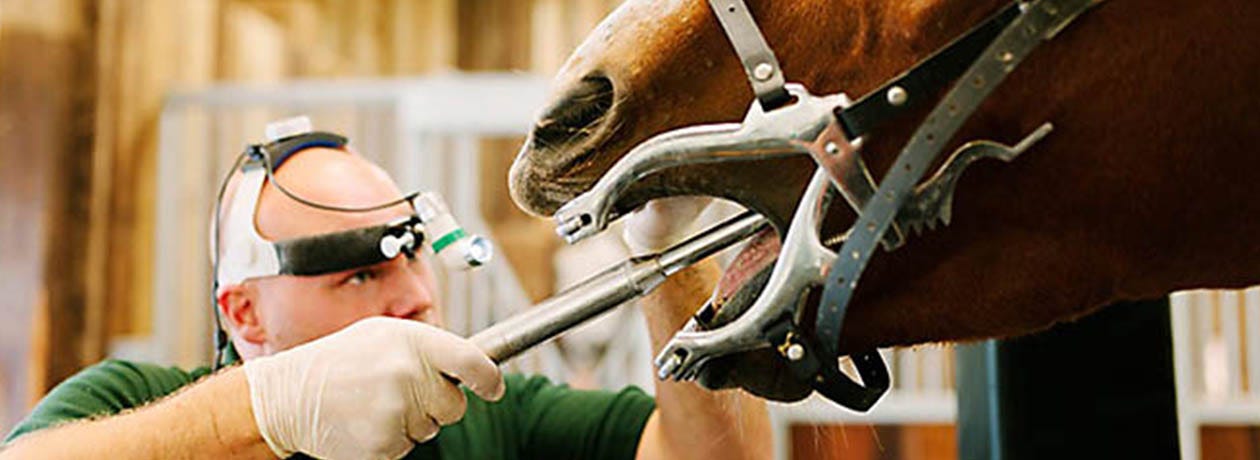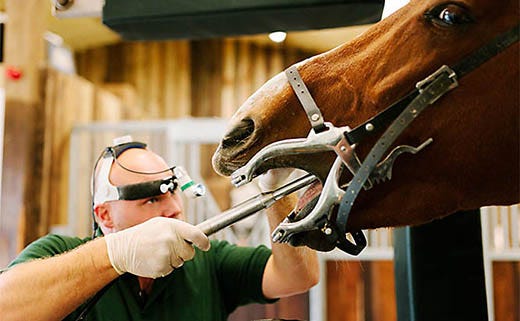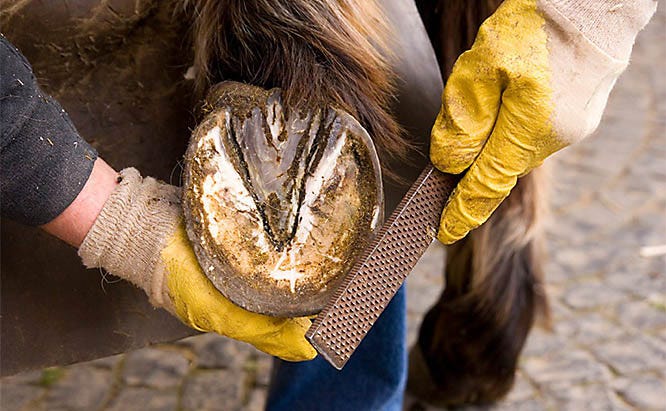Getting Horses Ready for the Spring Season

Here’s a guide of some spring-cleaning tips for your stable and horses. Following this guide will help you have safe and healthy horses for the coming riding season.
Horse Vaccinations
Veterinarians suggest that annual vaccines be administered at regular intervals, and spring is an ideal time. Among the key annual vaccines you should be planning are:
- EEE, WEE & VEE – Eastern, Western and Venezuelan Equine Encephalomyelitis are viruses spread by mosquitoes. They can affect neurological functions and lead to death.
- Equine Viral Arteritis – A contagious viral disease that can cause mares to lose their pregnancies and may also kill young foals.
- Tetanus Toxoid – This vaccine helps prevent tetanus in horses, which are often subjected to this bacteria throughout their environment. Horses infected with tetanus suffer from respiratory failure.
- West Nile Virus – Another mosquito-borne virus that can cause paralysis, weakness and other issues in horses before they succumb to the affliction.
- Double check– Make sure your horse is up-to-date on all other vaccines as well.
Early Season Horse Feeding Tips
- Winter Activity Levels- Be aware that some horses thin out over the winter, while others fatten up due to lack of exercise. Adjust food offerings for each accordingly.
- Winter diet vs. Spring Diet – Don’t expect your horses to be able to immediately switch from hay to grazing at the start of spring. You need to make this transition slowly, so reduce feed amounts gradually.
- Appearance: Plump and hairy, larger than most other stinging insects. Black, yellow and orange banding.
- Green Grass Warning – Fresh, green grass is high in a nutrient called fructan, and that can spell trouble for the hindgut after months of eating hay. Too much of this early-growth grass can lead to colic or laminitis.
- Incremental Grazing To avoid trouble with fructans, introduce your horses incrementally to the pasture over several weeks. Start with an hour on the first day and increase it by 15 minutes each day after. This helps them build up the appropriate tolerance.
- Temporary Fencing - Use temporary electric fencing to mark off certain sections of pasture for later use. This saves grazing acreage for later in the season and prompts horses to thoroughly exhaust all the resources available to them in one section, rather than only cherry-picking the best vegetation.
Horse Skin Problems
If you’re into horse competitions and showing horses, then you know that their skin needs to be pristine. Be sure to get your horses treated as soon as a problem is identified because skin afflictions are usually a sign of a compromised immune system.
- Dermatitis – These hives can indicate sensitivity to food, insects or topical agents. Take measures to determine the source of the hives and then eliminate from the environment.
- Lice – Look for these tiny insects along the neck, flanks, tail base, tail, forelock and mane. nest builders. They bore circular holes in soft wood to lay eggs.
- Mange – This parasitic infection is caused by mites. It presents itself as small round bumps that eventually leave bald spots with thickened skin.
- Primary Seborrhea – This is a dry dandruff condition that shows skin scaling and crusting, usually near the mane and tail base. The oily version of this dandruff condition develops as large waxy crusts along the elbows, hocks and lower legs.
- Rain Rot – A common skin infection brought on by damp conditions that appears as crust-like scabs or small mats of hair about ¼ inch wide.
- Ringworm – This contagious fungal infection is evidenced by patches of raised, hairless skin, often where the horse comes in contact with tack or harness.
Horse Dental Issues

Horses should have annual dental checkups to be sure that their teeth are in good condition and doing so in the spring is important as the transition from a winter feeding regimen. If a problem developed during those long weeks in the stable, then there’s still time to help. Your horses may be having dental issues if they:
- Demonstrate pain while eating or are eating very slowly.
- Leave long, unchewed plant matter in their manure.
- Make a slurping sound while eating.
- Exhibit bleeding from the gums or swellings in the lips, cheek or tongue
- Resist taking bits, exhibits head shyness or shake their heads a lot while working.
- Show a reluctance to eat their normal foods.
Keep Hooves Healthy

Although hooves don't grow quite as fast in the winter, they still grow. Proper hoof care in the spring is a must. There is a danger that a hoof will get out of balance or cracks will develop. Paying attention to your horse's hooves can save a lot of time, energy, pain and money. Here are four ways to keep their hooves healthy:
- Inspect – Take a look at your horses’ hooves on a daily basis. Inspect for shoe problems, injuries and other telltale signs of a problem.
- Clean – To do so, clean your horses’ hooves on a regular basis with a hoof pick and stiff bristle brush. Aim to clean out debris daily from the sole.
- Feed – Your horses’ hooves require specific nutrients, so keep an eye out for a hoof supplement that contains biotin and zinc.
- Exercise – Look for ways to keep your horses moving. Doing so will promote appropriate hoof growth and strengthening. One way to keep them moving is to provide them with small enclosure via electric fencing and then add a horse soccer ball.
Horse Parasite Control Tips
Spring is the ideal time to provide your veterinarian with a manure sample from each horse to test for parasites. Once the results are back:
- Discuss – Be sure to talk about how much, if any, of a parasite load your horse can carry since these parasites can grow resistant to the deworming drugs.
- Medications – Determine the best medications to apply to your horses and their effects.
- Schedule – Set and follow a strict horse deworming schedule.
- Dosage – Learn the appropriate dosage for medications for each horse, since your horses will be dosed by body weight.
- Administration – Learn the best way to provide the deworming medication – whether it’s by syringe or pellets, and understand the conditions needed for each.
Start Exercise and Conditioning
It’s important to ease your horse back into regular activity. Here are some ideas for your horse (and a few for you, too):
- Exercise Ball – Add an exercise ball to the pasture and watch the fun.
- Encourage Roaming – Put your horses out in the pasture, and set up water tanks, salt licks and other interesting objects on the far side.
- Guided walks – Rather than ride your horse somewhere, take it for a walk by leading it there and back.
- Half Rides – Similar to the guided walk, you lead the horse out, but then ride it back home.
Springtime Fence Maintenance
Take time to check your electric fence for any necessary repairs. Winter weather can wreak havoc on even the sturdiest of fencing, causing containment issues for you and safety issues for your horses. Walk your fence line, to check these issues:
- Posts – The freeze-thaw cycle can disrupt the angle of your fence posts. The ground could even eject them entirely!
- Insulators – Cold weather, sunlight and moisture can stress out the plastic or ceramics in your insulators. With the fence off, check and clean them.
- Tension – The changing temperatures could cause a line to sag or over-tighten. Check all lines between posts.
- Lines – The cold and wind can also tear, tangle or breakdown your electric fence line.
- Gates - Sagging gates may need a tightening or re-installation.
- Boards- Broken and weak boards will need to be replaced for sure, write down how many new boards you will need so it is easy to remember.
- Nails - Loose nails can be hammered back into the fencing or completely replaced if needed.
